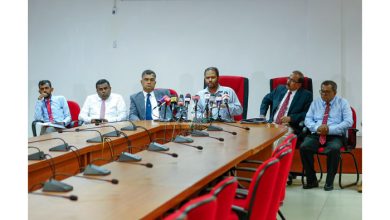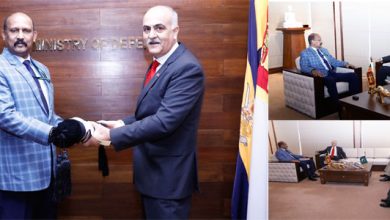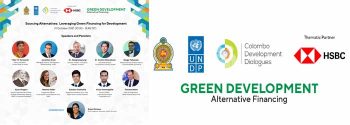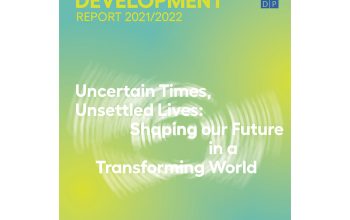Enhancing Waste Management in Healthcare and Agriculture Sectors in Sri Lanka
Validation Workshop on Integrated Management and Environmentally Sound Disposal of POPs Pesticides, Mercury and Waste
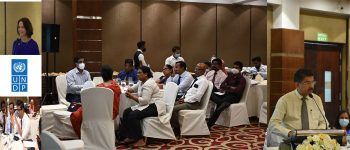
Having ratified the Stockholm Convention on Persistent Organic Pollutants in 2005, Sri Lanka has taken many positive steps including the preparation and updating of the National Implementation Policy (NIP) for the control of Persistent Organic Pollutants (POPs) and strengthening regulations on POP management. With the onset of COVID-19, there was an increase in the use of plastics in PPEs, while vaccination drives also increased the generation of healthcare waste. To cope with increased levels of healthcare waste, current trends are to burn waste which can generate Unintentionally Produced Persistent Organic Pollutants (U-POPs) which are hazardous carcinogenic substances.
To combat the issues arising as a result of hazardous waste, the Ministry of Environment together with the United Nations Development Programme (UNDP) in Sri Lanka with the support of the Global Environment Facility (GEF) is developing a project to improve the regulatory framework on chemical management, strengthen national capacities in agricultural chemicals management, and support the transformation of healthcare waste management systems specifically to enforce regulations and minimize or eliminate releases of POPs, mercury, and other chemicals of concern and phase-out the use of mercury-based products in the health sector and improve healthcare waste management systems.
Speaking on the challenges and way forward, Dr. Anil Jasinghe, Secretary, Ministry of Environment noted that, “The cross-cutting nature and the complexity of the issues faced by the key government institutions involved regarding chemical management has made it complicated to find a single solution that works for all. This project, implemented by UNDP, allows all key institutions to realise the importance of collectively coming together to create one framework that strengthens national capacities in agricultural chemical management and healthcare waste management systems in Sri Lanka.”
Sri Lanka is also a signatory to the Minamata Convention on Mercury, which stipulates that the manufacturing of mercury-based items, including medical equipment, must cease as of January 2021. Thus, replacing mercury-based products must be coordinated to avoid hazardous waste from contaminating municipal solid waste and affecting both human health and the environment.
Highlighting UNDP’s role in supporting waste management efforts in the health and agriculture sectors in Sri Lanka, Ms. Malin Herwig, Officer In Charge, UNDP in Sri Lanka emphasized that, “The improper management of healthcare and agricultural waste has adversely affected the health of individuals working in the healthcare and agriculture sectors, communities and the environment at large while jeopardizing food and nutrition, which is a timely concern for Sri Lanka. The project serves to improve the regulatory framework on chemical management, strengthen national capacities in agricultural chemicals management, and support the transformation of healthcare waste management systems”.
In line with this, a validation workshop was held on 15 September 2022 with over 70 participants to discuss and finalise key elements of the project with relevant stakeholders, and secure agreement and support for its implementation, to build a safe, clean and green Sri Lanka for all.


